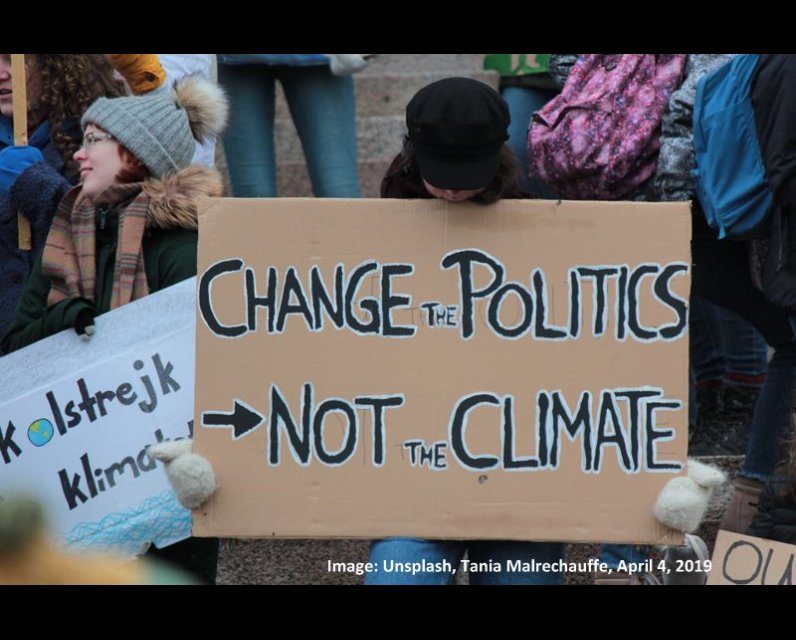Unpublished Opinions
Roland (Rolly) Montpellier is the co-founder and Editor of Below2°C. He’s a climate activist, a climate communicator and a blogger. He’s a member of Climate Reality Canada, 350.Org (Ottawa), Citizens’ Climate Lobby (Canada) and climate ambassador for We Don't Have Time. You can follow him on Facebook, Twitter, Instagram, Linkedin.
The Big Winner in Canada’s Election: Climate Politics

We just had our first election where every party leader had a climate plan to offer voters and it became a contest of my plan is better than your plan. How sweet this is for a climate activist...
Canada’s Election 44 is now history. Justin Trudeau and the Liberals did not get what they wanted but instead got what they deserved, another minority. Seeking to capitalize on his handling of the coronavirus crisis, Trudeau’s obvious power grab failed. And while it’s true that few Canadians wanted this pointless election and most of us thought it was a complete waste of over $600 million dollars, in the end there is a positive side. Climate politics emerged as the clear winner opening the door for a more ambitious and bold climate policy agenda.
Climate Politics – the Big Winner
A weakened Liberal minority affords a rare opening for more progressive, even transformative climate policies. Voters expect this next government to last its full 4-year term which is code talk for more collaboration and less confrontation between political parties. The climate movement must seize this opportunity to change the politics.
Canadians voted for a climate plan
For the first time ever, every major party put out a real plan to tackle climate change and to put a price on pollution. “Last time round, two-thirds of Canadians voted for parties that supported carbon pricing and regulations. In this election, fully 95 per cent did so,” writes Chris Hatch is his weekly National Observer climate crisis newsletter.
Hatch adds that” the Liberals will need to be held to account on a whole range of issues: a Just Transition Act for workers, regulations to clamp down on oil and gas pollution, phasing out public finance for fossil fuels, a ban on coal exports.”
The Green Party, NDP and climate organizations like 350.Org Canada, the Climate Emergency Unit, Stand.Earth, as well as the Canadian public in general, will push hard to make sure the Liberals deliver on their promises. The stakes are sky-high and the expectations are now even higher than for any previous government. It’s the new climate politics where we expect more political will and courage from party leaders.
Opportunities for more ambitions climate policy
Five out of the last seven Canadian elections produced a minority government. And as we saw just months before the election call, opposition parties can exercise their power quite effectively in a minority situation. The NDP and the Greens, as well as climate advocacy groups, pushed hard to force the Liberals to make significant improvements to Bill C-12: Canadian Net-Zero Emissions Accountability Act.
We can expect more of the same during the next minority government. It’s a sure bet that no one political party will want to force another quick election and face an angry Canadian electorate which wants its MPs to work together. The Liberals have made climate pledges and promises which they cannot take back. They will be pushed to do much more in many areas including the electrification of transportation, emissions-reduction targets and putting an end to fossil fuel subsidies.
Electrification of Transportation
Canada’s political parties agree that the transition to a clean energy future is crucial. The low-lying fruit is the electrification of transportation which is the source of 189.9 Mts of Canada’s GHG emissions, or 25% of our total. This will require a boost in dollar incentives—consumer cash rebates, tax breaks—for buyers but more importantly, ZEV (Zero Emissions Vehicle) regulations with rising sales quotas for automakers and auto dealers. Right now it’s nearly impossible to buy an electric vehicle in Ontario. I’ve just placed an order for the Volkswagen ID4 electric vehicle and the delivery will be 18-24 months from now. I’m number 81 on the dealership’s list for this vehicle model.
Automakers will oppose ZEV regulations as vigorously as the oil and gas lobby will fight a cap on emissions promised by the Liberals. In Canada, 4 out of every 5 vehicles sold is an SUV, pickup truck or van but only 1.6% are electric. Canadians own and drive the world’s most polluting vehicles.
The Liberal platform stipulates that 50% of light-duty vehicle purchases must be ZEVs by 2030. The target increases to 100% by 2035. “To get ZEV Regs passed faster, and to counter the intense lobbying from the automakers who oppose them, Canadian climate change activists should organize and act on this issue immediately,” says Ken Love, an organizer with Climate Messengers.
On a broader level, the Liberals promised a clean electricity standard that will clean our grid as the electrification of “everything” unfolds.
Oil and gas emissions are now on the table
Emissions from the oil and gas sector are Canada’s largest and fastest growing source of climate pollution. Quite unexpectedly during the waning days of the campaign, the Liberals announced a plan to cap emissions from this sector and to strengthen current regulations on methane.
“Emissions in the oil and gas sector will no longer rise, will decrease every year,” said Trudeau on the campaign trail…Let’s be realistic, over a quarter of Canada’s emissions come from our oil and gas sector. We need the leadership of these industries to decarbonize our country,” Trudeau said. This is a radical shift for Trudeau who has been a cheerleader for the oil and gas sector during his first two terms in office.
The Liberals plan to set five-year targets for emissions reductions in the oil and gas sector starting in 2025.
Ending subsidies for oil and gas
The Liberal platform included two commitments toward phasing out subsidies to the oil and gas sector:
- Accelerate our G20 commitment to eliminate fossil fuel subsidies from 2025 to 2023.
- Develop a plan to phase-out public financing of the fossil fuel sector, including from Crown corporations, consistent with our commitment to reach net-zero emissions by 2050.
But the Liberal record on ending fossil fuel subsidies is abysmal according to Environmental Defence. Its Paying Polluters report shows a minimum payout of $18 billion in 2020 which includes $5.25 billion to finance the construction of the TMX (Trans Mountain pipeline) expansion.
The twisted logic of putting a price on pollution through a carbon tax and then subsidizing the oil and gas sector that produces the pollution in the first place is bizarre at best. “It’s the opposite of the polluter-pay principle, and we’re paying for polluters,” says Julia Levin, Climate Program Manager with Environmental Defence.
Climate didn’t steel the show during the recent election campaign. It did not get the attention—the sense of urgency—that the climate crisis should command. But nothing puts a smile on a climate activist’s face like watching each party leader claim that their climate plan was better than the others.



Comments
Be the first to comment